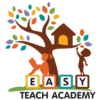Introduction:
Early childhood education plays a pivotal role in shaping the academic growth and future success of children. It provides a strong foundation for learning and development, setting the stage for lifelong learning and achievement. The formative years of a child’s life are crucial, and quality early childhood education programs have proven to have numerous benefits that extend far beyond the early years. This article explores the significance of early childhood education in promoting academic growth and the long-term advantages it offers.
Brain Development:
The early years of a child’s life are a critical period for brain development. Research indicates that during this phase, the brain undergoes rapid growth and forms important neural connections. Early childhood education provides stimulating and enriching experiences that nurture cognitive development, language acquisition, and problem-solving skills. It lays the groundwork for future academic endeavors by enhancing memory, attention span, and reasoning abilities.
Language and Communication Skills:
Language and communication skills form the basis for academic success. Early childhood education programs focus on promoting language development through activities such as reading, storytelling, and interactive discussions. By exposing children to a rich vocabulary, they develop strong communication skills, which are vital for effective learning, social interaction, and future academic achievements.
Social and Emotional Development:
Early childhood education nurtures social and emotional skills that are essential for academic growth. Through interactions with teachers and peers, children learn to express their emotions, share, cooperate, and resolve conflicts. These experiences foster empathy, self-regulation, and positive relationships, creating a supportive learning environment that enhances academic engagement and overall well-being.
School Readiness:
Early childhood education programs prepare children for the transition to formal schooling. They introduce basic academic concepts, such as numbers, letters, shapes, and colors, in a fun and interactive manner. By engaging in age-appropriate activities, children develop essential pre-reading and pre-math skills. Moreover, they learn important routines, such as following instructions, working in groups, and respecting authority, setting the stage for a smooth transition to elementary school.
Lifelong Learning:
The benefits of early childhood education extend far beyond the early years. Studies have shown that children who receive quality early education are more likely to continue their education, complete higher levels of education, and pursue successful careers. The foundational skills and love for learning instilled during these formative years create a positive attitude towards education and a thirst for knowledge, which propels academic growth throughout their lives.
Closing the Achievement Gap:
Early childhood education has the power to bridge the achievement gap that often exists between children from different socioeconomic backgrounds. By providing equal access to quality education and resources, it helps level the playing field and ensures that all children, regardless of their background, have an equal opportunity to succeed academically. Investing in early childhood education is not only a moral imperative but also an effective strategy to promote equity and social mobility.
Conclusion:
Early childhood education lays the groundwork for academic growth, providing children with a strong foundation for future learning and success. The cognitive, language, social, and emotional skills developed during these crucial years set the stage for continued academic achievements. By investing in quality early childhood education programs, we empower children to reach their full potential, close achievement gaps, and create a brighter and more equitable future. Recognizing the importance of early childhood education is essential for individuals, communities, and societies as a whole.

